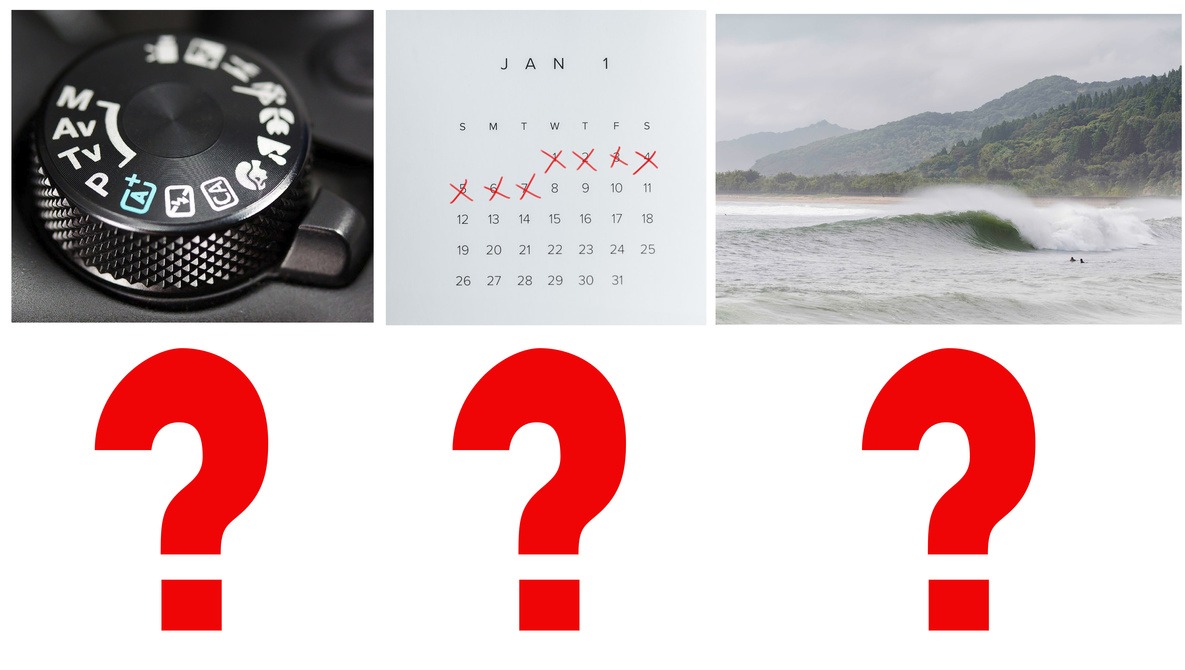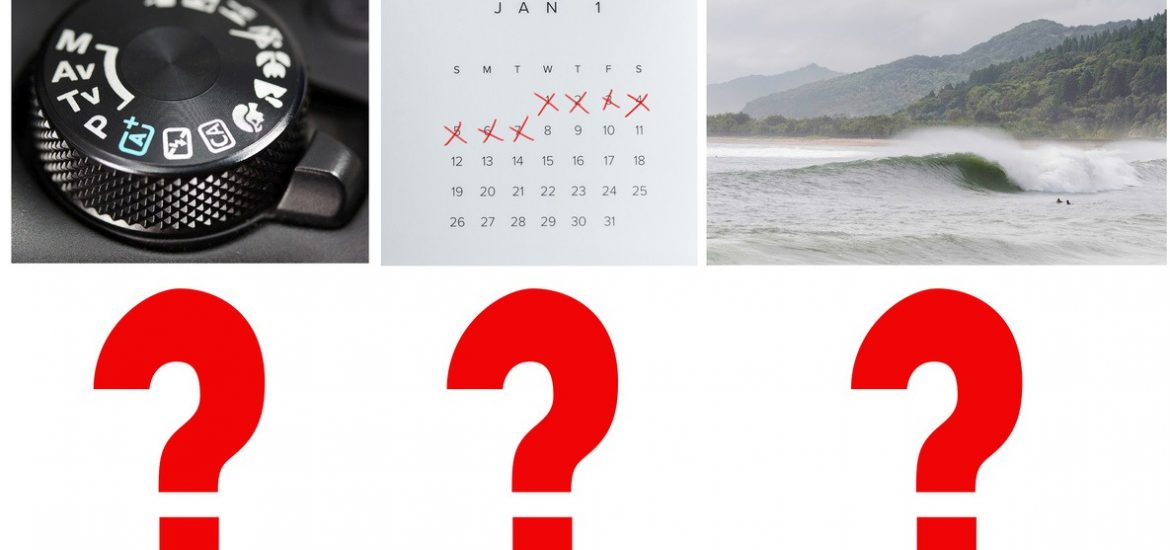
When it comes to photography and the quest to improve, there is no shortage of advice out there. Some of it’s great, some of it is rather questionable, and some of it is utter nonsense. Here’s some of the worst advice I’ve received over the years.
First, before we get into the article itself I want to make it absolutely clear that I’m talking from a purely personal, subjective viewpoint. As the title suggests, this is the worst advice that I have ever received. It may not be applicable to you and you may well disagree with my viewpoint, but I’m sure there are other types of advice that you have received that have been equally as bad from your own perspective. So with that out of the way, let’s get going.
I’m not sure if it’s a good thing or not but when I was an undergraduate student at university in Sydney, I studied liberal arts. A Bachelor of Arts is what I graduated with, to be specific. A B.Arts (or BA) in Australia is often derogatorily referred to as a “Bugger All” degree, which in local lingo means it’s pretty much worthless because of the idea that it doesn’t really train you to enter into any particular vocation. However, what it does certainly help you with is critical thinking and I learned very early during my time at university that advice and opinions, no matter who they’re from, are very similar in that everyone has them but they’re not necessarily helpful a lot of the time when you get them. Learning to become a critical thinker is immensely beneficial in that it allows you to sift through a myriad of information more acutely and more quickly identify things that might assist you in whatever research you’re doing.
Thus, when I began my journey into photography and started to get a little bit more serious about it, quite naturally I began to encounter more and more people in the field. Some were teachers, others were experienced professionals, while others were simply enthusiastic hobbyists. Yet they all had their own opinions about what good photography is and what you should do to improve. I found it incredibly interesting listening to so many different viewpoints but it very quickly became apparent that, for me, a lot of it was nonsense that was completely irrelevant to me and my goals.
Only Shoot in Manual Mode
One of the worst pieces of advice I got from many people in different genres was to always shoot in manual mode. No doubt, looking back, it was purely an ego thing and a desire to show other people how much they knew about the craft and their equipment, and a way to separate themselves from the plebs beneath them who used any kind of auto function on their cameras. Usually, the idea behind shooting manual only was that it gave you total control over all of the settings so you weren’t held hostage in any way by the whims of the pre-installed computer inside your camera making decisions for you.
For me, there are very few absolutes in life, more so in photography, so using all of the available options on a camera seems rather prudent to me in most situations. Therefore, when people insisted that I didn’t use any other setting except for manual mode I usually gave them a polite smile and quickly left them to their own devices.
Drill Down Into A Specific Niche
Another piece of advice that I’ve always found rather baffling is the idea that you should find your niche in photography quickly and really focus on that specific type of photography at the expense of everything else. Or, as another friend said, “always stay in your lane.” The essence of this is the notion that you should master your craft in a very specific area of photography rather than float around in different genres while becoming a master of none. Of course, this idea might apply perfectly to people whose sole income relies on a rigid type of photography such as studio portraits of newborns but for the majority of photographers, I can’t think of anything more limiting.
Going back to point one above and the benefits of a liberal arts education, it might come as quite a surprise to you that over a third of the current CEOs in Fortune 500 companies have a liberal arts degree. For example, Slack founder Stewart Butterfield, as well as LinkedIn founder Reid Hoffman, both have a master’s degree in philosophy, and co-founder of the search engine Aardvark, Damon Horowitz, holds a doctorate in philosophy. What does this mean? It means that having a broad education and a wide understanding of a variety of different areas helps you immensely in your chosen field.
Thus, when you apply that to photography, understanding and practicing a vast array of genres will, ultimately, help you in whatever specific genre of photography you’re focused on. For instance, if you’re a wedding photographer who makes money by shooting weddings every weekend then it will benefit you greatly if you also have a good understanding of landscape and seascape photography. That way, when you’re shooting the bride and groom before the wedding or after the wedding for their specific couple shots you can take them out into areas of nature and use your knowledge of landscape photography to produce shots that are much better than if you had no idea about any of the concepts in landscape photography or how to use natural light. You can say the same about mixing and matching many different genres.
30-Day Challenges
Finally, we arrive at, by far, the worst photography advice I’ve ever received. For me, photography is a creative pursuit where I can express my views and emotions through imagery. Sometimes it works, other times it doesn’t, but producing images must always come from my love for taking photos. Like everyone, I go through phases where I just don’t feel in love with photography. Indeed, for the last month or so I’ve barely picked up a camera owing to different circumstances, but I haven’t missed it at all because I haven’t felt any real enthusiasm or desire to go out and take photos. That’s absolutely fine because I know the creative juices will start flowing again, as they always do.
However, when I first started out with photography and found myself in these periods of inertia, I got so many people suggesting the same thing to me. What was it? To go out and give myself a 30-day challenge taking photos in a genre I’m not normally interested in. Honestly, I couldn’t think of anything worse. I always wondered why on earth anyone would force themselves to do something they have no particular interest in for 30 straight days. Just why?
Of course, the idea is that it might give you new ideas or rekindle your passion for taking photos, but that’s simply not how I work. You might think this is counter-intuitive to my ideas above about liberal arts and educating yourself in many areas, but it’s not. In liberal arts, as in photography genres, you have a lot of choices about what you can study, but that doesn’t mean you should study things you’re simply not interested in. For example, during my BA I never went anywhere near anything related to business or economics. Just as in photography, I’ve never had any interest whatsoever in product photography. That’s just personal.
If I’m not interested in something, I won’t do it, so I can’t think of anything worse than forcing myself to photograph things for 30 days straight in the hope that I find the bug again. And it’s not just the photography, is it? You have to categorize your raw files, edit them, cull the ones you don’t like, and so forth. Can you imagine how much time that would take over 30 days? Doing such a challenge would likely kill me off rather than help me in any way.
Summing Up
To reiterate, these ideas are personal. Your feelings might be different. But the big takeaway here is that you don’t need to follow all the advice you get, no matter who it comes from. Take what works for you but don’t be afraid to ditch the other stuff. What about you? What’s some of the worst photography advice you’ve ever had? I’d love to hear from you in the comments below.
